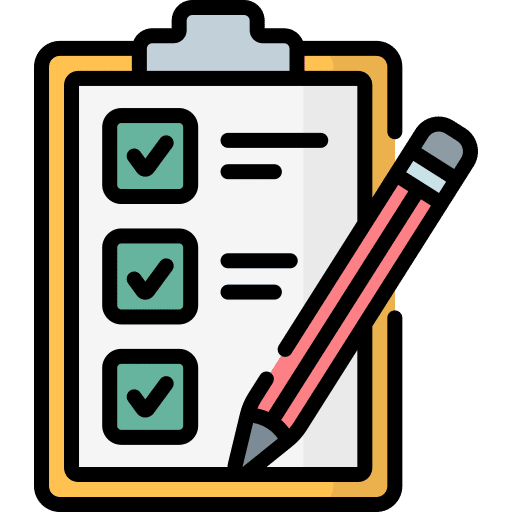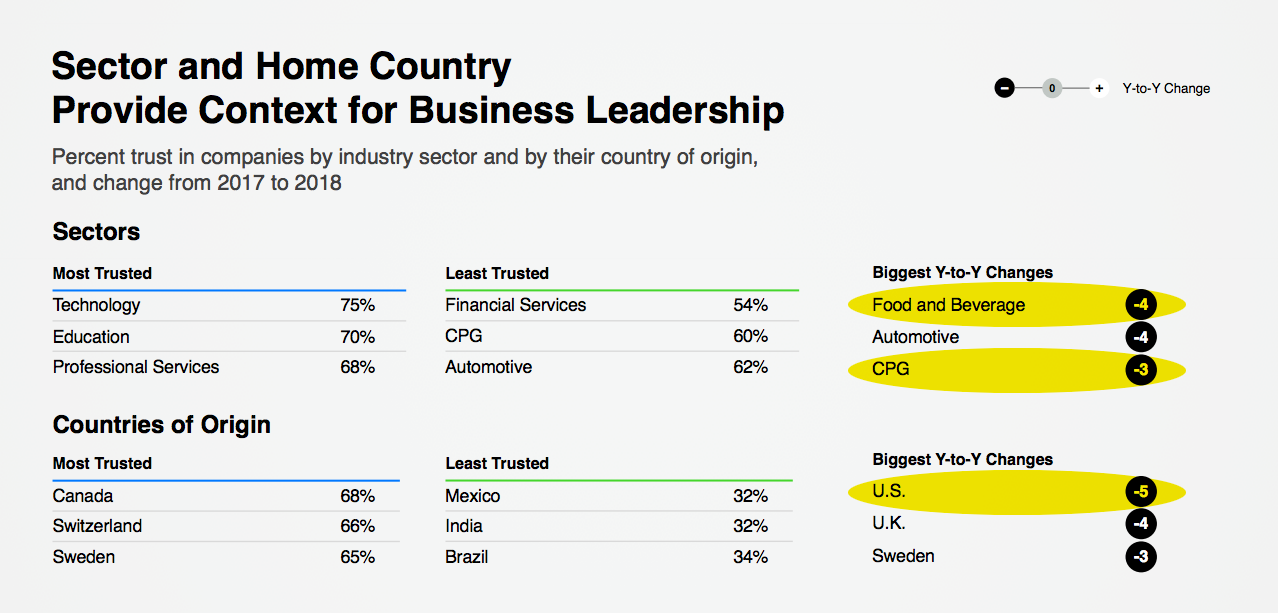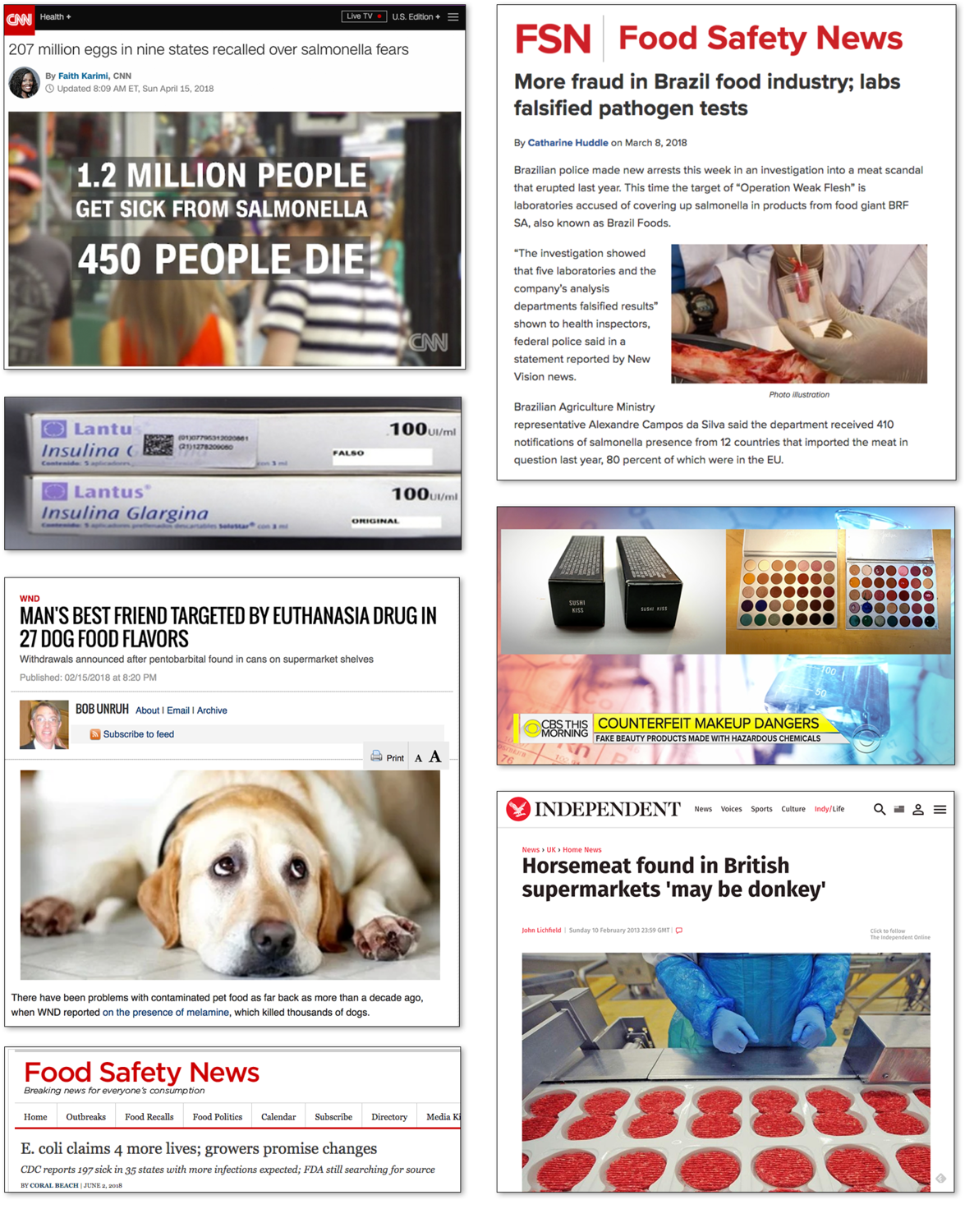For 29 years, my career path has been that of a corporate salaryman — marketing and pitching consumer products. Whether potato chips, toothpaste, an antihistamine or a new shampoo, I was the guy defining the brand, crafting the strategy, designing the website, optimizing it for search, creating the social strategy and ad campaigns, pitching the clients, and/or managing the teams to do all of the above. Back in the 80s and 90s, brands could ride on the power of the investment they made in marketing, and there was a symbiotic relationship: consumers would trust and buy the product, and in exchange, the brand would ensure it was reliably safe and met a high standard of quality. Everyone won.
In a world of fake news, consumer trust has shattered
Jump forward to April 2018. The world is a crazy polarized place, many corporations are solely shareholder-focused, and consumer trust has cratered. According to the 2018 Edelman Trust Barometer, trust in business, the government, media and NGOs has dropped more among Americans than any other country. And two of the three largest sectors losing trust are Food & Beverage and Packaged Goods – those same brands I used to work for.
It’s easy to see why trust is plummeting. Incidents of contamination and counterfeit products are appearing in the news every week — and the frequency is increasing. Salads at your local fast food restaurant. 207 million eggs. Rotting, expired beef being bleached and then canned and sold into the US. Even crackers! Food, beauty and pharma brands are running up against counterfeiters who sell fake products into your local drug store. Questionably deceptive labelling. People are even counterfeiting insulin and heart meds, copying the packaging so perfectly that only an expert would notice. And that carefully-built and expensive social compact between brand and consumer? It’s dissolving as we speak, and as the recalls and whistleblowers escalate, so will consumer distrust, and the reputational and financial risk to brands.
Getting laid off was my wake-up call
For the past couple of years, I’d been a senior exec at an iconic office equipment company. I was on my way to the airport to keynote the Global Blockchain Summit when the call came: my team and I were being downsized as part of a merger.
I had enjoyed working at the company, and of course, getting that call was a disappointment. I got off the phone and wasn’t sure how to proceed. I couldn’t represent my former employer at the Summit…should I just apologize and bow out, missing an incredible speaking opp? If I went anyway, who am I representing? Would I have any credibility as an unemployed executive? Should I start a new venture, or fall back to the (safer?) route of working for an established brand? In that moment, my path became clear.
I completely rewrote my keynote, and gave one of the best talks of my career, conveying the story of my abrupt departure and how it was a wakeup call. How I wanted to work for brands that cared about their customers beyond their website copy — brands that were willing to prove they cared. How I wanted to give brands the courage to become transparent and trustworthy using blockchain technologies, and outlined a path for them to do so. After I got off the stage, I got approached by companies from the US, Canada, Australia, Italy and Bangladesh, wanting to know more and speak further. The organizer later told me it was the best presentation of the day — feedback confirming I was on the right path.
Brands need to prove we are worthy of customer trust
The time to sell solely based on brand equity has come and gone. The time for me to start helping brands recognize and deal with this shift has arrived. Brands can’t simply pitch their wares and rely on marketing budgets to sell anymore. Glossy brochures, press releases and shotgun blog posts won’t work anymore. To survive the trust crash, CEOs, CMOs and brand managers need a Proof Strategy. A Trust Strategy. CEOs must prove they, and their products, are still worthy of customer trust.
In our new venture, my partner Mark Kurtz and I are creating proof through a combination of IoT sensors, on-the-ground certification, and blockchain-based product and logistics information. By automating data input, we can improve data integrity going into the chain (solving for the inherent Garbage In, Garbage Out threat to ledger-based data). By certifying what’s happening at the point of origin, we can reduce fraud. By opening up product information to all the participants in a supply chain, we can build trust amongst partners and provide more data to wary consumers.
Imagine a refrigerated shipment of beef leaving a certified organic farm. A tired truck driver stops to rest in Tempe, Arizona and forgets to turn on the refrigeration unit. Temperatures reach 140°F in the truck and the meat begins to spoil. The driver wakes up, thinks “whoops,” turns on the unit and drives on. The compromised meat cools down and arrives at the warehouse, and no one downstream in the supply chain has any idea. Later, some kids get sick and efforts begin to try to trace the contamination back to the source. A few months into the 2018 Romaine Lettuce scandal, and officials still can’t trace the actual source. According to clients in the supply chain, this kind of logistics slip-up happens all the time. Whose reputation is most damaged — the shipper, the cannery, or the warehouse? Nope, it’s the brand – to the tune of an average $10M cost per recall.
With a blockchain-based provenance system, we can intercept the issue in real time. And by sharing performance data among supply chain players, we can bake good behavior into the system by rewarding transparency. Distributed ledger technologies will allow us to become participants in a more transparent supply chain without giving away competitive advantage. Hell, in a distrustful world, transparency will be a competitive advantage!
Let us help you build proof and regain trust
Today Mark and I officially launch Transparent Path, a management consultancy and system integrator guiding brands to regain and retain consumer trust. We’re working on agreements for the IoT sensors and the on-site certification with some like-minded partners (announcements coming soon!), and we’ve chosen Perth-based Blockhead Technologies as our first official technology partner. We’re also partnering with the University of Oregon Blockchain association to work with us on these projects.
Our personal passion is to save lives, prevent sickness, reduce fraud and help stop our current slide into chaos. If you manage a brand or work in supply chain, need to demonstrate innovation to your customers or shareholders, and understand the financial upsides to transparency, we’d love to bring that passion to your brand.
This is my path — a very worthy path for 2018 — and I hope you’ll join us on it!




